 CRISPR-based method can speed the identification of disease-causing genes
CRISPR-based method can speed the identification of disease-causing genes
A new CRISPR gene editing screening method can be used to link phenotype and genotype in animal models. The method was efficiently deployed in zebrafish and significantly reduced the time needed to evaluate the function of hundreds of genes, according to a paper published in Science on August 19. Read More
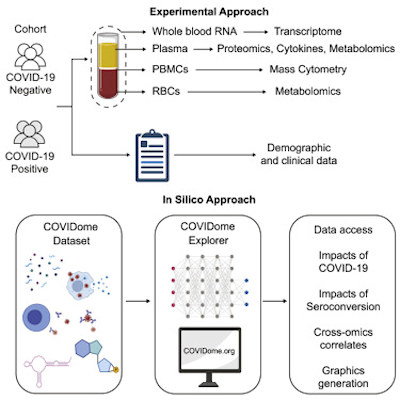 COVID multiomics dataset, portal go online for public use
COVID multiomics dataset, portal go online for public use
A new multidimensional dataset for COVID-19 multiomics research has been released to the public, along with a free online research portal for analyzing the data. The COVIDome Explorer and dataset, described recently in Cell Reports, give researchers a way to share data and collaborate in real-time for the clinical management of COVID-19. Read More
 McMaster, Sartorius partner on improving biomanufacturing
McMaster, Sartorius partner on improving biomanufacturing
Sartorius Stedim Biotech and McMaster University, which is located in Hamilton, Ontario, Canada, plan to collaborate on an effort to improve advanced manufacturing processes for antibody and virus-based treatments for diseases like COVID-19 and cancer. Read More
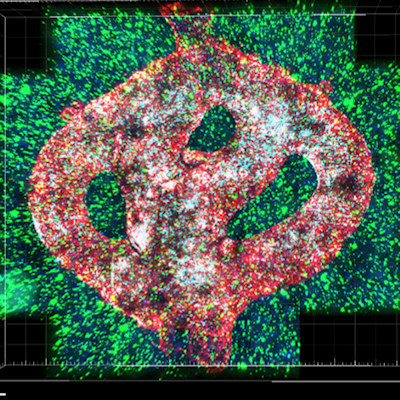 Researchers create 3D tumor models with cells from patients
Researchers create 3D tumor models with cells from patients
Using tissue samples from cancer patients, Israeli researchers have successfully printed an active, viable glioblastoma 3D tumor model. In addition to potential applications in personalized medicine, the achievement promises to speed drug development and increase the chances that developed drugs will succeed in clinical trials. The results were published August 18 in Science Advances. Read More
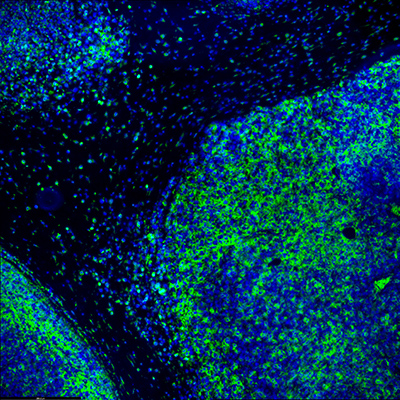 New England Biolabs launches NEBNext immune sequencing kits
New England Biolabs launches NEBNext immune sequencing kits
New England Biolabs has launched NEBNext immune sequencing kits, which are available for human or mouse samples to allow for B-cell and/or T-cell repertoire analysis of infections, the company announced. Read More
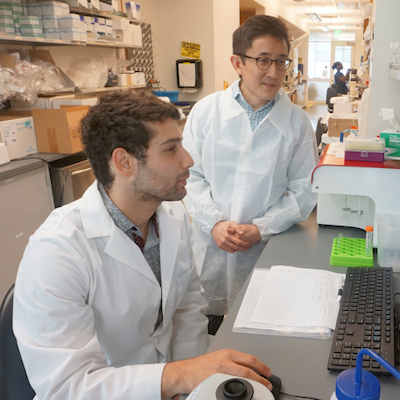 Heat-controlled CAR T cells show improved cancer-killing ability
Heat-controlled CAR T cells show improved cancer-killing ability
By adding a genetic on-off switch to engineered CAR T cells, researchers have developed a remote-controlled system that enables precision invasion of the tumor microenvironment for improved cancer-killing capabilities. The details of the research were published in Nature Biomedical Engineering on August 12. Read More
 New award program recognizes marketable scientific advances
New award program recognizes marketable scientific advances
A new award to recognize researchers who ask fundamental questions at the intersection of life sciences and entrepreneurship has been launched by the American Association for the Advancement of Science and the Copenhagen-based BioInnovation Institute Foundation. Read More
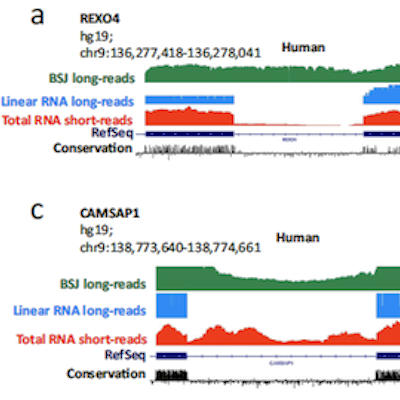 Long-read sequencing of circRNA finds autism-linked microexons
Long-read sequencing of circRNA finds autism-linked microexons
Scientists have developed a new laboratory protocol and bioinformatic pipeline using a long-read sequencing platform from Oxford Nanopore Technologies for exploring the composition of circular RNA (circRNA). The technique, published on August 10 in Nature Communications, showed that a group of microexons that had been previously linked to autism are preferentially found in circRNA. Read More
 Researchers call for improved reporting of environmental conditions in cell culture
Researchers call for improved reporting of environmental conditions in cell culture
There is an urgent need to improve the reporting of environmental conditions for mammalian cell culture experiments for biomedical research, according to a comment published in Nature Biomedical Engineering on August 13. Read More
 Harvard launches Pluto Biosciences collaboration platform
Harvard launches Pluto Biosciences collaboration platform
The Harvard Wyss Institute has launched Pluto Biosciences, a new startup offering a cloud-based collaboration platform for researchers that incorporates technology developed within the institute's Predictive Bioanalytics Initiative. Read More
Member Rewards
Earn points for contributing to market research. Redeem your points for merchandise, travel, or even to help your favorite charity.
Research Topics
Interact with an engaged, global community of your peers who come together to discuss their work and opportunities.
Connect
Tweets by @ScienceBoard



